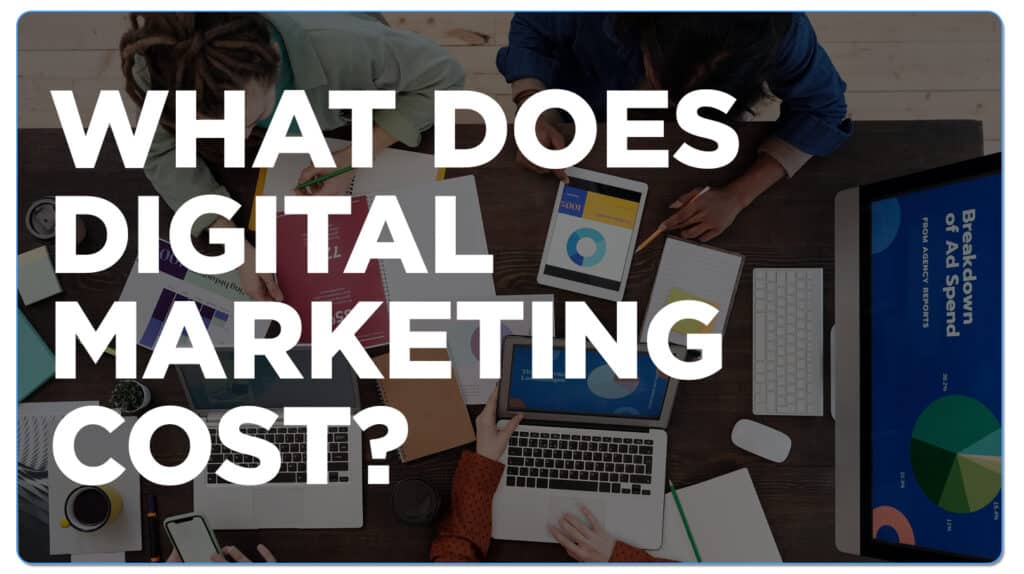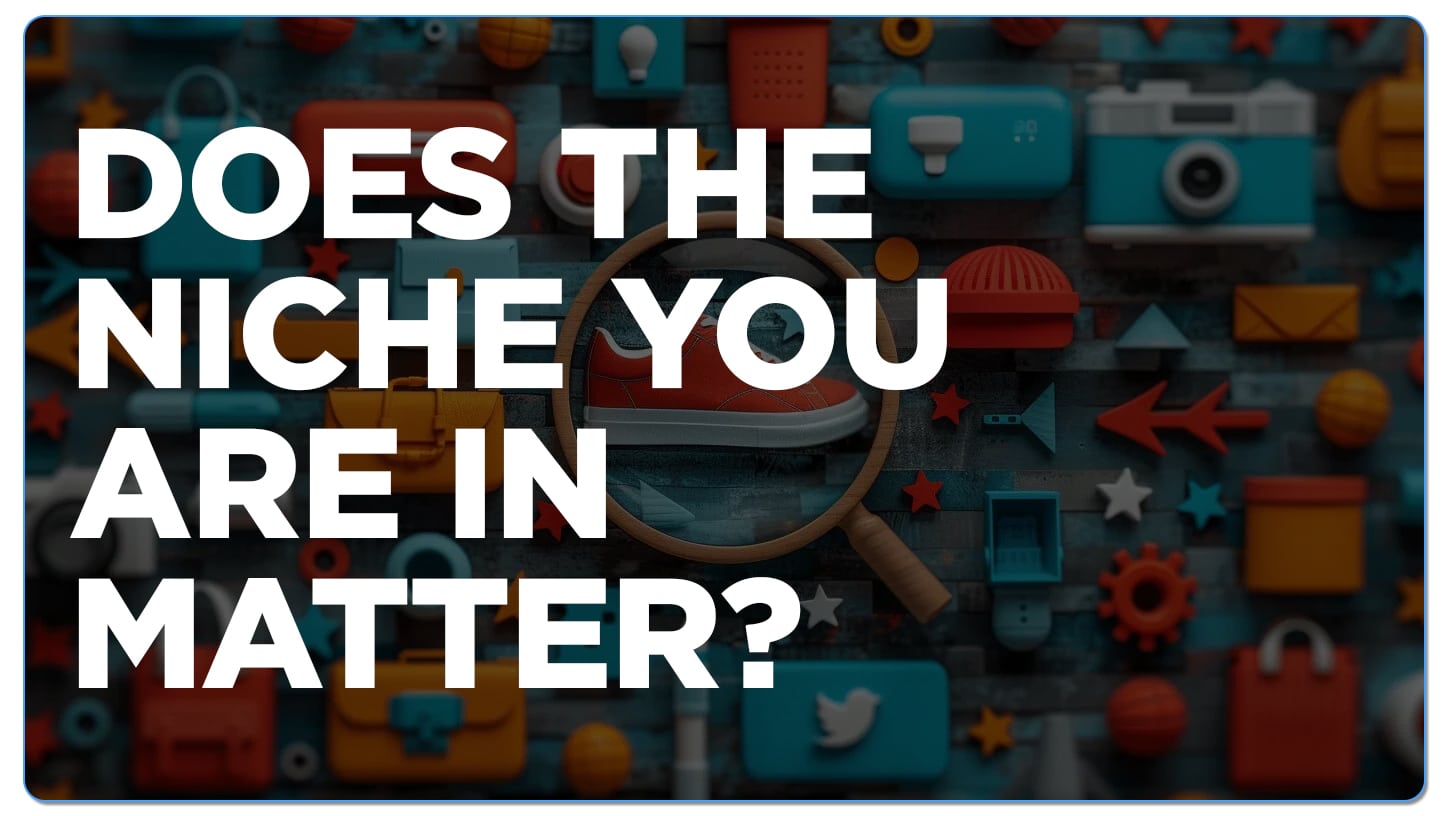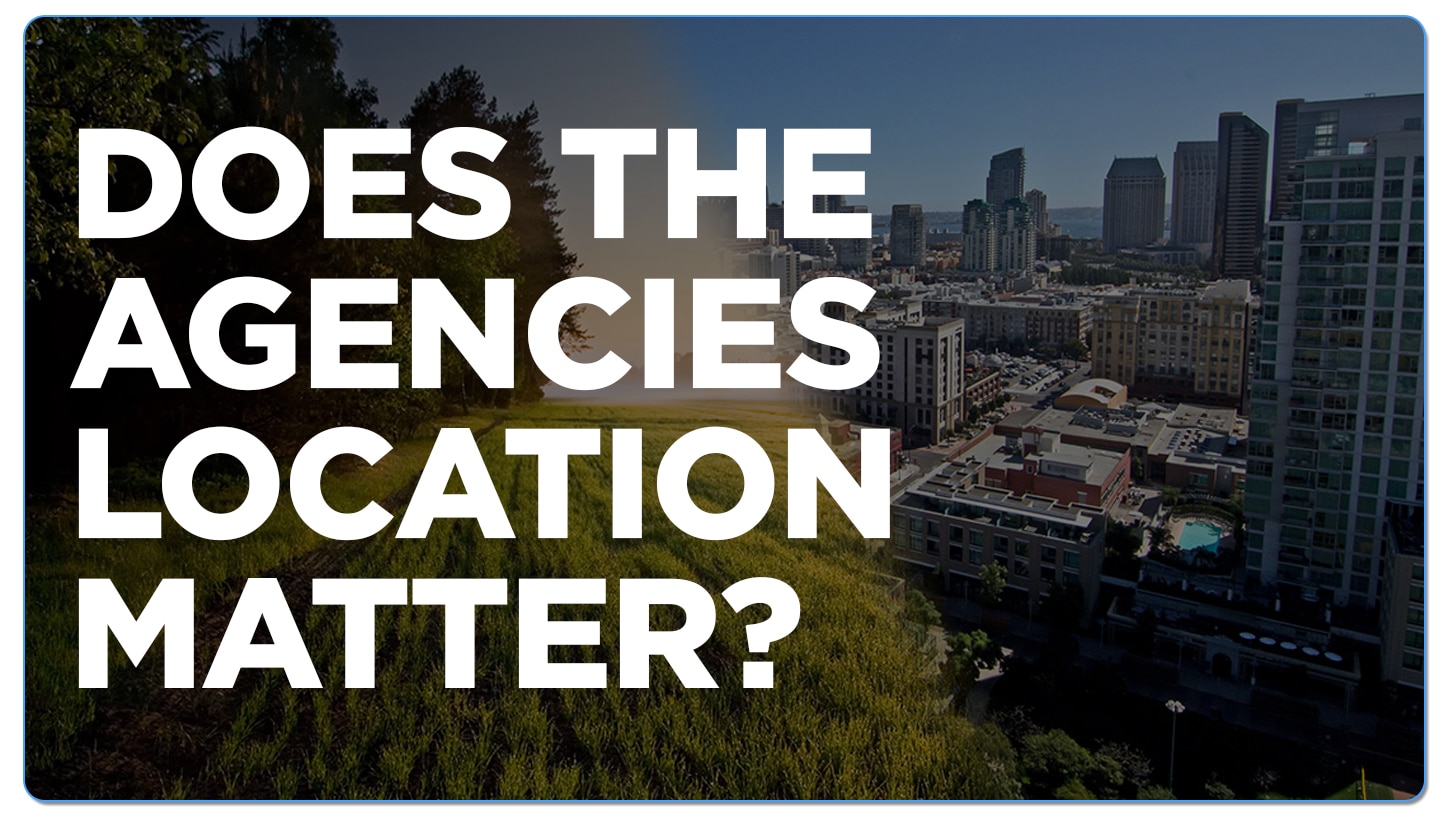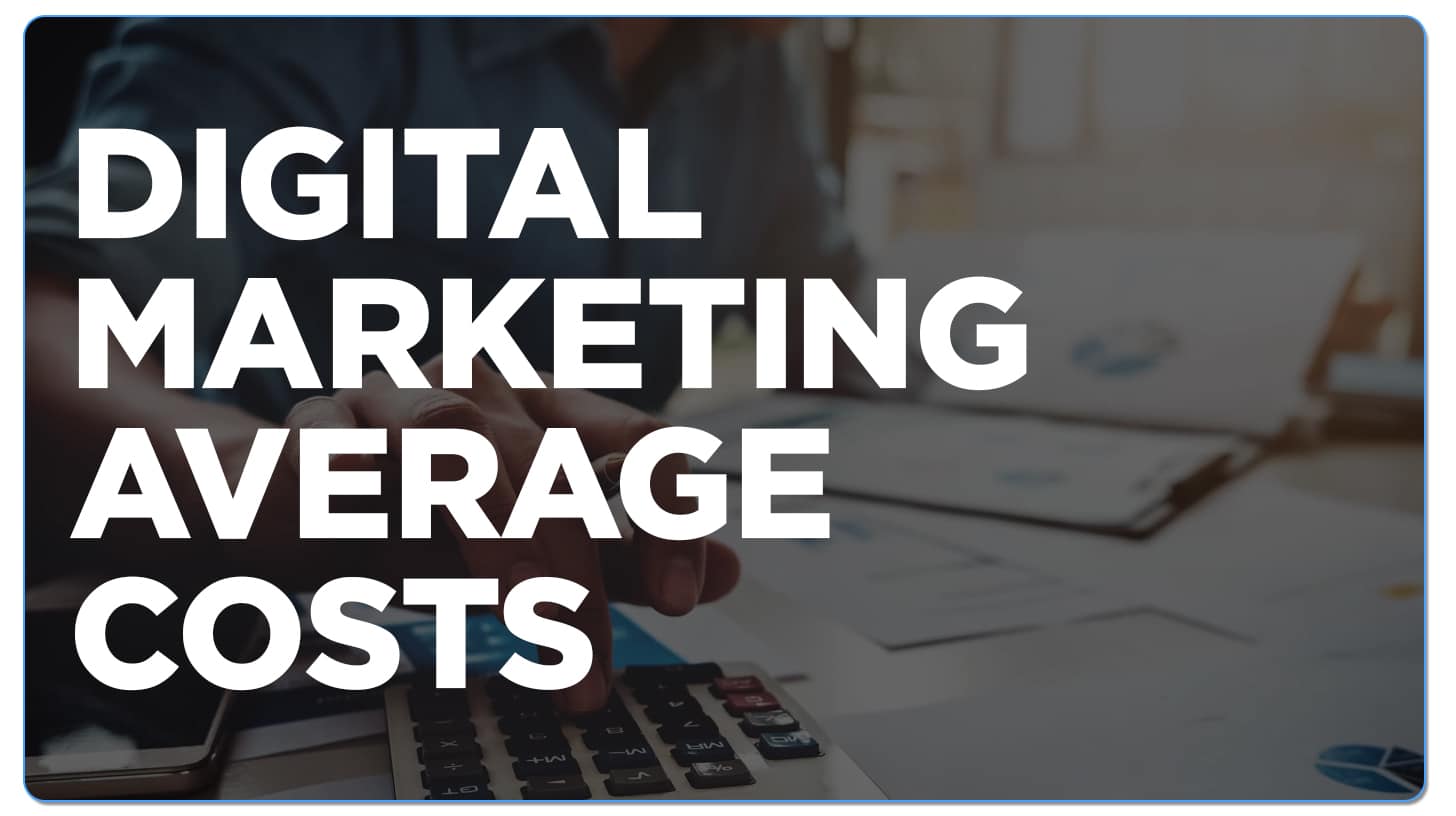What Is The Average Fee For A Digital Marketing Agency?

Hiring a digital marketing agency can be expensive and time-consuming. Many businesses, big and small, need help finding the right balance between quality services and budget constraints.
The goal is to maximize online presence without breaking the bank. Digital marketing agencies offer a wide range of pricing models, making it possible for different types of businesses to find a match that suits their financial capabilities.
This article explores factors influencing costs and sheds light on what businesses can expect to pay for digital marketing services. From understanding how location and competition affect pricing to examining different payment structures like hourly rates and project-based fees, readers will gain insights into navigating these expenses more effectively.
Key Takeaways
- Digital marketing agency costs vary depending on your business needs, the agency’s location, and the competition in your market. For example, agencies in big cities might charge more because their costs are higher.
- There are different ways to pay for these services, including package pricing, which offers a set of services at one price, hourly rates between $50 and $500 an hour, or project-based fees varying wildly depending on the job details. Small—to mid-sized companies usually spend about $2,000 to $6,000 monthly when choosing packaged deals.
- The type of work you need to be done also affects the price. Improving your website’s performance or getting better spots on search engine result pages requires specific skills and can cost more if you’re starting from scratch or in a highly competitive field.
- Getting accurate results from digital marketing efforts like social media ads or SEO (search engine optimization) might take time. Quick options like PPC (pay-per-click) advertising show results faster, but both strategies require ongoing attention and investment.
- Your industry plays a role, too; businesses in areas like finance or healthcare may face higher costs due to intense competition and strict regulations that demand specialized marketing strategies.
Factors that Impact the Cost of a Digital Marketing Agency
Several elements are vital in determining the cost of hiring a digital marketing agency. These include your business’s specific needs, such as niche or industry focus, and external factors, like geographic location and the level of competition in your market.
Niche

| Niche/Industry | Impact on Pricing | Reasons |
|---|---|---|
| E-commerce | High | High competition online means the constant need for SEO and PPC to drive traffic and conversions. |
| Legal Services | Very High | Highly competitive keywords and high value per client, leading to higher marketing investments. |
| Healthcare & Pharmaceuticals | Very High | Strict advertising regulations, high competition for keywords, and a need for specialized content. |
| Technology & Software | Moderate to High | Rapid industry evolution, high demand for cutting-edge SEO and content marketing strategies. |
| Real Estate | High | Local and national competition, high reliance on local SEO, and targeted social media advertising. |
| Finance & Insurance | Very High | Highly competitive, expensive keywords, need for trust-building through content and social media. |
| Hospitality & Travel | Moderate to High | Seasonal fluctuations, high competition, engaging content need, and social media presence. |
| Retail & Consumer Goods | Moderate to High | A broad audience and extensive SEO, PPC, and social media strategies are needed to stand out. |
| Non-Profit | Low to Moderate | Lower competition but requires targeted strategies for donor engagement and fundraising. |
| Education & Training | Moderate | Niche-dependent competition requires a mix of content marketing, SEO, and PPC for student recruitment. |
A business’s niche or target market is critical in determining the cost and effectiveness of digital marketing efforts. Due to varying customer behaviors and platform preferences, specific industries might find certain advertising channels, such as social media, search engine optimization (SEO), and pay-per-click (PPC) advertising, more beneficial than others.
For example, a business that sells artistic supplies may thrive on platforms like Pinterest or Instagram through influencer marketing campaigns that visually showcase their products.
Moreover, competition within a niche can significantly influence the demand for keywords and ad space, affecting costs. High-demand niches such as finance or health supplements often experience fierce competition in search engine results pages (SERPs), pushing up the price for ads and SEO services aimed at these markets.
Businesses must carefully research their target audience, choose keywords that align with their brand, and offer an optimal balance between visibility and cost.
Advertisers also need to consider conversion rates when selecting their niche strategy. A well-defined niche allows for more personalized content creation, email marketing campaigns, and targeted PPC advertisements that resonate deeply with the target market.
This tailored approach often leads to higher engagement levels on social media platforms and improved return on investment from online marketing activities. Brands aiming for success in digital spaces invest time in understanding their unique position within the market landscape to develop strategic marketing campaigns that effectively reach their ideal customers.
Location

| Business Location | Impact on Pricing | Reasons |
|---|---|---|
| Major Metropolitan Areas | High | Higher cost of living and operational expenses, dense competition, and a larger target audience. |
| Small to Medium Cities | Moderate | Lower operational costs than central cities, but still competitive in specific niches. |
| Rural Areas | Low to Moderate | There is less competition and a lower cost of living, but due to smaller local markets, it might require a broader reach. |
| Online/Global Market | High | Requires strategies to stand out in a global market with vast competition and potentially higher advertising costs. |
| Emerging Markets | Moderate to High | There is less competition in some niches, but investment in education and market penetration strategies is required. |
| Region-Specific Markets | Variable | Costs vary widely depending on the market’s saturation, competition, and economic conditions. |
Location plays a significant role in determining the cost of hiring a digital marketing agency. Agencies located in major metropolitan areas often charge more for their services due to higher operating expenses such as rent and salaries.
Furthermore, the demand for digital marketing services in densely populated regions can drive up prices, reflecting the intense competition among businesses to capture market share through effective digital advertising and social media campaigns.
Conversely, agencies situated in smaller cities or rural areas may offer more competitive rates. This variation is not merely a reflection of lower overhead costs but also indicates differences in market saturation and local economic conditions.
Clients looking to optimize their marketing budget find value in partnering with agencies outside major urban centers without compromising on the quality of services like search engine optimization (SEO), content marketing, or pay-per-click (PPC) advertising campaigns.
Digital marketers understand that location influences strategy; thus, they adapt their approaches based on regional trends and audience behavior. An agency’s geographic positioning shapes its expertise in local SEO tactics, understanding cultural nuances for brand awareness initiatives, and effectively leveraging regional social media channels.
Clients should consider an agency’s location in their broader decision-making process when selecting partners to develop successful Internet marketing strategies tailored to specific target audiences.
Competition

| Level of Competition | Impact on Pricing | Reasons |
|---|---|---|
| High Competition | Very High | In highly competitive markets, keywords in PPC campaigns are more expensive, and SEO requires more resources to achieve higher rankings. This necessitates a larger budget for content creation, advanced analytics, and targeted social media campaigns to differentiate from competitors. |
| Moderate Competition | Moderate | Markets with moderate competition require a balanced approach to digital marketing, focusing on niche targeting and efficient use of budget for SEO and PPC to achieve visibility. The costs are substantial but not as high as in highly competitive sectors. |
| Low Competition | Low to Moderate | PPC costs are lower in less competitive markets, and achieving higher SEO rankings is easier. This allows for a more conservative budget allocation toward digital marketing efforts, focusing on building a solid online presence and engaging with the target audience. |
Competition among digital marketing agencies significantly affects their pricing structures. Agencies must balance offering competitive rates with the need to cover operational costs and make a profit.
This competition drives service innovation, including search engine optimization (SEO), pay-per-click (PPC) advertising, and social media marketing. Constantly evolving strategies are essential for standing out in a crowded field.
To attract clients, digital marketing agencies differentiate themselves through specialized services such as video marketing, graphic design, and web design. Due to the expertise required, deep knowledge of specific marketing channels like Google Ads or Instagram marketing can command higher fees.
The fight for brand recognition among agencies encourages them to deliver exceptional results, enhancing both businesses’ return on investment (ROI) and client loyalty.
Timeline for results
| Digital Marketing Activity | Expected Timeline for Results | Factors Influencing Timeline |
|---|---|---|
| SEO (Search Engine Optimization) | 6-12 months | The complexity of the website, competition in the niche, quality, and quantity of content, and backlink strategy. |
| PPC (Pay-Per-Click Advertising) | Immediate to 1 month | Ad quality, keyword competition, targeting accuracy, and landing page optimization. |
| Content Marketing | 3-6 months | Content quality, frequency of publication, audience engagement, integration with SEO strategy. |
| Social Media Marketing | 1-3 months | Platform choice, content virality, engagement strategy, consistency in posting. |
| Email Marketing | 1-3 months | Quality of the email list, relevance and personalization of content, frequency of emails. |
| Influencer Marketing | 1-2 months | Influencer’s audience size and engagement rate, relevance to the brand, and campaign creativity. |
| Affiliate Marketing | 3-6 months | Quality and relevance of affiliates, commission structure, product or service demand. |
| Video Marketing | 1-6 months | Content quality and relevance, distribution strategy, and platform optimization (e.g., YouTube SEO). |
Moving beyond competition, understanding the timeline for results is vital in digital marketing strategies. Different services within a digital marketing agency carry varying timelines before showing tangible outcomes.
For instance, SEO (search engine optimization) efforts may take months to significantly increase a website’s search engine ranking. This gradual progress reflects the time required to build backlinks, enhance webpage content, and improve overall website performance for organic traffic growth.
Pay-per-click (PPC) advertising offers a contrasting pace. Results can appear almost immediately after a campaign starts because ads begin to reach potential customers as soon as they are live on platforms like Google or Facebook.
The immediacy of PPC results contrasts with the slower buildup of SEO success but requires continuous investment to maintain ad quality scores and cost-effective engagements. Both methods are integral to an effective digital marketing strategy, emphasizing that timelines for results vary greatly depending on the chosen avenues and their management within an agency’s ecosystem.
Current search engine ranking
A company’s position on search engine results pages dramatically influences the cost of digital marketing services. High rankings on search engines often mean a business has solid online visibility, which can decrease the work needed to improve its position.
Conversely, businesses that rank lower require more intensive SEO strategies and investments to climb higher. This includes techniques like optimizing website content for keywords, building backlinks, and enhancing site performance.
Search engine optimization (SEO) services prove crucial for improving these rankings, with average monthly costs ranging from $3,000 to $7,500. The market’s competitiveness plays a significant role in determining this price range.
For instance, industries with high competition might see businesses spending closer to or even beyond the upper limit to secure top spots in search results through effective SEO practices.
Pay-per-click (PPC) advertising complements SEO efforts by instantly boosting a site’s visibility via paid ads. This strategy requires careful investment management since costs per click can vary widely depending on industry competition and keyword popularity.
Companies often allocate between $1500 and $5000 per month to enhance their current search engine ranking through combined SEO and PPC campaigns, aiming for optimal placement in searches related to their field.
Website performance
| Website Performance Aspect | Impact on Digital Marketing | Actions for Improvement |
|---|---|---|
| Fast-Loading Pages | It increases visitor engagement and reduces bounce rates, enhancing the effectiveness of PPC and social media ads by reducing drop-off rates. | Optimize images and videos for faster loading times. Use efficient coding and server resources. |
| Mobile Responsiveness | Essential for reaching the vast number of users on mobile devices. Improves search engine rankings and user experience. | Design websites with a mobile-first approach. Test on various devices for compatibility. |
| Enhanced Navigation | It makes it easier for visitors to find what they want, improving user satisfaction and conversion rates. | Simplify website layout, use clear and intuitive menu structures, and implement breadcrumb navigation. |
| Use of Media Management Tools | Streamlines the process of optimizing media for performance, offering insights for continuous improvement. | Implement tools for image compression, video optimization, and content delivery networks (CDNs). |
Website performance significantly influences digital marketing success. A fast-loading site with engaging content captures visitors’ interest and retains them longer, potentially boosting conversions and brand loyalty.
Investing in website optimization ensures that pay-per-click advertising, social media advertising, and other ad campaigns reach their full potential by providing a seamless user experience for visitors.
This step is essential as it directly impacts the return on investment (ROI) from various marketing efforts.
Improving website performance requires meticulous attention to detail across several fronts:
- It is optimizing images and videos for faster loading times.
- We are ensuring mobile responsiveness.
- Enhancing navigation is just a few examples.
Practical media management tools can assist in these tasks by streamlining processes and providing actionable data analytics to guide further improvements. Agencies often allocate a portion of the marketing budget towards these optimizations, recognizing their critical role in overall digital strategy success.
Next is understanding the average cost of digital marketing agency services, where financial planning meets strategic execution to drive business growth.
Average Cost of Digital Marketing Agency Services

Determining the average cost of digital marketing agency services requires analyzing various pricing models and how they align with business goals. Agencies offer a range of options that cater to different budgets, ensuring companies can find a solution that fits their financial constraints and marketing needs.
Packaged pricing
| Package Type | Price Range | Typically Includes |
|---|---|---|
| Starter | $1,000 – $3,000 | Basic SEO, social media management, and content creation for a limited number of platforms. |
| Standard | $3,000 – $7,500 | Comprehensive SEO, PPC campaigns, social media management across multiple platforms, and essential email marketing. |
| Premium | $7,500 – $15,000+ | Advanced SEO, PPC, social media strategy, email marketing, marketing automation, analytics, and reporting. |
Packaged pricing offers digital marketing services in a bundled format, providing businesses with comprehensive tools and strategies for a single price. This approach simplifies budgeting for companies by giving them clear insights into their monthly or annual marketing costs.
Agencies might include social media management on platforms like Facebook YouTube advertising, PPC campaigns, and content creation within these packages. Including these elements supports increased subscribers, enhances brand visibility across various channels, and drives higher ROI from marketing budgets.
Clients find packaged pricing appealing because it eliminates the uncertainty of hourly or project-based billing. Digital agencies tailor these packages to meet diverse needs, ranging from primary offerings for startups to premium options that cater to more extensive requirements involving complex digital strategies and competitive niches.
Such flexibility ensures that small—and medium-sized businesses can select packages that align well with their goals without overstretching their financial resources. With average monthly investments in digital marketing services ranging between $2,000 and $6,000 for small—and medium-sized enterprises, packaged deals effectively manage and maximize marketing investments efficiently.
Hourly pricing
| Service Type | Hourly Rate | Comments |
|---|---|---|
| Basic Digital Marketing | $50 – $150 | General digital marketing services, including basic SEO and social media management. |
| Specialized Services | $100 – $300 | Services requiring specific expertise include advanced SEO, PPC management, and technical website audits. |
| Consulting & Strategy | $150 – $500 | High-level strategy planning, marketing consulting, and campaign strategy development. |
Shifting from the structured costs of packaged pricing, hourly pricing offers clients a flexible payment option. Digital marketing agencies often set hourly rates between $50 and $500, reflecting a range determined by expertise, location, and services.
Due to its adaptability, clients seeking specialized services like PPC (pay-per-click) advertising or infographic creation find this model appealing.
The average hourly rate for hiring a digital marketing agency is most commonly between $80 and $200. This variation allows businesses of different sizes and budgets to access professional digital marketing services without committing to a long-term contract.
Agencies capable of delivering high ROI through practical PPC advertising or affiliate marketing strategies may command higher prices within this spectrum.
Businesses looking for cost-effective solutions might lean towards freelancers offering lower rates than full-service agencies. However, it’s essential to consider the cost and the value brought by experienced professionals who can significantly enhance a brand’s online presence through strategic media management and targeted campaigns.
Project-based pricing
| Project Type | Price Range | Typically Includes |
|---|---|---|
| Website Design & Development | $5,000 – $30,000+ | Custom website design, development, and basic SEO optimization. |
| SEO Campaign | $2,500 – $20,000+ | Comprehensive keyword research, content creation, link-building, and technical SEO over a fixed period. |
| PPC Campaign Setup | $1,000 – $7,500 | Account setup, keyword research, ad creation, and initial campaign strategy for Google Ads or social media platforms. |
| Social Media Campaign | $2,000 – $10,000 | Strategy development, content calendar creation, and initial post creation for specific platforms. |
| Content Marketing Strategy | $3,000 – $15,000 | Development of a content strategy, including blog posts, whitepapers, and video content over a fixed period. |
| Email Marketing Campaign | $2,000 – $8,000 | Strategy development, template design, content creation, and initial blast to a segmented list. |
Project-based pricing offers a clear advantage for businesses looking to engage digital marketing agencies for specific campaigns or projects. Agencies typically charge between $1,000 and $8,500 per project, allowing companies to allocate their budget more effectively.
This model ensures costs are directly linked to deliverables, providing clients a transparent understanding of what they are paying for. It suits organizations with distinct goals or targets for pay-per-click (PPC) advertising on platforms like Facebook and seeking a tangible return on investment (ROI).
Digital marketing agencies tailor their project-based services to meet each business’s unique needs, considering factors such as niche competition and desired outcomes.
Costs vary significantly depending on the complexity and scope of the project. For instance, prices can range from $2,000 to $10,000 for engagements that require comprehensive strategies across multiple channels, including PPC and cost-per-click (CPC) campaigns.
This flexibility allows businesses without in-house media managers to leverage expert skills.
Opting for this pricing model enables companies to test different marketing tools and strategies before committing to long-term subscriptions or investments. The focus remains on achieving measurable results through targeted campaigns without the ongoing financial commitment associated with monthly retainers.
Businesses benefit from reading testimonials and examining previous case studies provided by agencies to ensure they choose the right partner for their project-based digital marketing endeavors.
Conclusion
The average fee for a digital marketing agency encompasses a broad range, reflecting diverse services and client needs. Costs vary widely, from hourly rates to project-based fees, influenced by location, industry, and desired outcomes.
This variability underscores the importance of clear communication between businesses and their chosen agencies to ensure alignment on expectations and investment. Engaging a digital marketing agency requires understanding these dynamics to maximize return on investment while effectively achieving targeted marketing goals.
FAQs
- What factors influence the fees charged by digital marketing agencies?
Digital marketing agencies’ fees can vary widely based on several factors, including the scope of services provided, such as pay-per-click (PPC) campaigns, Facebook advertising, and strategies to improve ROI (return on investment). The level of expertise and experience the agency brings to your project also plays a critical role in determining costs.
- How do digital marketing agencies calculate charges for PPC campaigns?
Digital marketing agencies often calculate charges for PPC campaigns based on cost per click (CPC), which means you pay a fee each time someone clicks on your advertisement. This approach allows for precise budget control and ensures you only spend money when potential customers show interest in your product or service.
- Can hiring a digital marketing agency improve my business’s ROI?
Yes, hiring a skilled digital marketing agency can significantly enhance your business’s return on investment. Agencies specialize in crafting targeted advertising strategies designed to attract your ideal customer base while optimizing spending across various platforms, such as Google Ads or Facebook Advertising.
- What is the average fee range for services offered by digital marketing agencies?
While fees vary depending on the specific services required and the campaign scale, most businesses should expect to invest anywhere from several hundred to thousands of dollars monthly when partnering with a reputable digital marketing agency. This investment covers strategic planning, execution of ad campaigns including CPC and PPC methods, continuous optimization efforts, and detailed performance analysis aimed at maximizing ROI.


